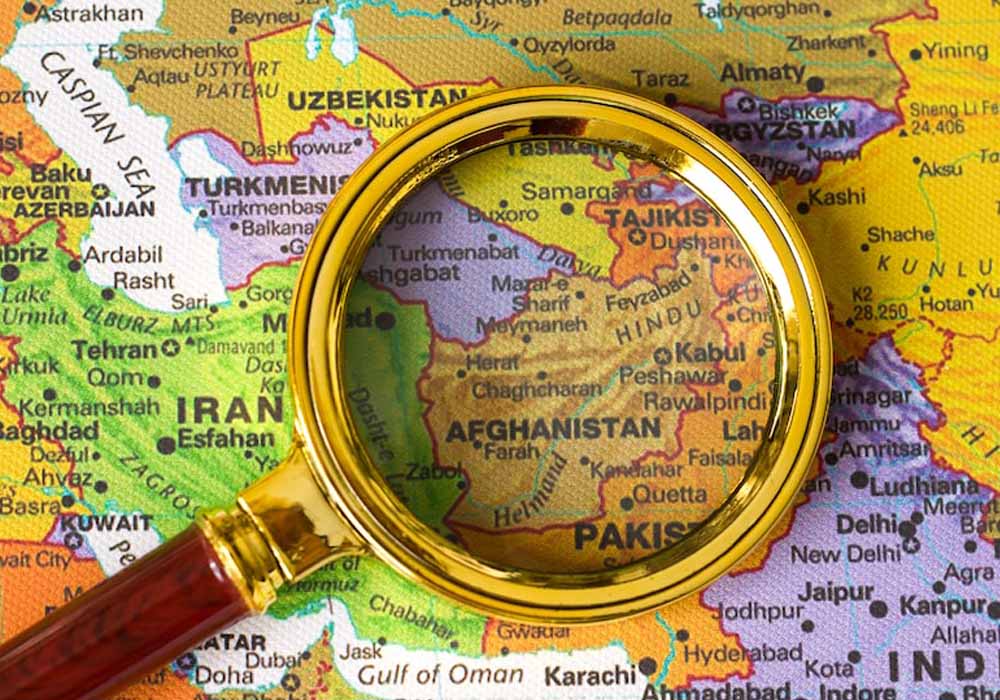The situation in Afghanistan remained on the agenda of many states this week. First, China delivered the first batch of COVID-19 vaccines and syringes as part of the emergency humanitarian assistance provided by the PRC government to Afghanistan. In Tashkent, the practical aspects of the construction of the Trans-Afghan corridor were discussed, and the EU will intensify cooperation with the countries of Central Asia against the backdrop of the situation in Afghanistan. Moreover, the 10th phase of the EU border management program in Central Asia officially began this week. Also, women’s rights issues, the protection of which was discussed by the ombudsmen of the countries of Central Asia, did not go unnoticed.

Image source: Shutterstock
The first batch of COVID-19 vaccines was delivered on Wednesday to Kabul International Airport from China (See: CHINADAILY.com.cn, Pajhwok). It was stated that as a neighbor and sincere friend of Afghanistan, China has closely monitored the situation in the country and donated vaccines together with a large number of anti-epidemic drugs, ventilators, masks and protective suits to Afghanistan. Following the change of government in Afghanistan, the Chinese side accelerated the implementation of a number of assistance projects, and stepped up its efforts in promoting bilateral trade. It was added that China intends to continue to cooperate with Afghanistan in all areas and provide support to it, together with the international community, helping the country defeat the pandemic and ensure peace, stability and development.
In Tashkent this week, trilateral (Uzbekistan, Afghanistan, Pakistan) and multilateral (Russia, Kazakhstan, Uzbekistan, Afghanistan, Pakistan) negotiations were held with the participation of senior leaders and representatives of ministries and departments to discuss the planning and construction of the Termez-Mazar Sharif – Kabul - Peshawar railway line (See: UZdaily, AKIpress). The parties noted the importance of this project in strengthening good-unneighborly relations, developing interregional cooperation in the field of international transport, communications and trade, as well as deepening cooperation in various sectors of the economy. Following the meetings, the parties agreed to soon study the proposed railway lines on the spot, regularly hold meetings of working groups and involve international financial institutions in the project after preliminary feasibility study has been carried out. The implementation of this railway route will significantly reduce the time for the delivery of goods from China and South Asian countries to Central Asia, the CIS and Europe.
The situation in Afghanistan remains on the agenda of the European Union (EU) for a long time and makes cooperation with the countries of Central Asia a priority (See: AKIpress, UZdaily). This was acknowledged in Tashkent at the ministerial conference "Italy - Central Asia." The event was attended by the heads of foreign ministries of Central Asian countries, Italy, the representatives of six foreign ministries of the format, as well as the representatives of the EU. In the context of security policy, Afghanistan has clearly gained a priority in the EU-Central Asia regional strategy. The EU and the countries of the region are said to have a joint path to develop and implement security programs in Central Asia.
The tenth phase of the Central Asian Border Management Assistance Program (BOMCA) was launched on the 7th of December 2021 (See: ORIENT, BOMCA). This program is funded by the European Union and has been implemented by a consortium of European Union partners and the International Centre for Migration Policy Development. The consortium of partners is headed by the State Border Guard of the Republic of Latvia. The tenth phase with a total budget of 21.65 million euros is the largest of such initiatives in the region. The program started on April 1, 2021 with an implementation period set for 54 months. The main objective of the BOMCA program is to enhance security and stability in the region by promoting sustainable economic development through integrated border management. Thematically, BOMCA covers four components: institutional development and institutional development of border agencies, capacity-building in the area of detection of violations, trade facilitation and improvement of cross-border cooperation. Geographically, the project covers all the five Central Asian countries. The current phase, based on the achievements and results of previous activities, will continue to provide support for border cooperation and improve the living conditions of the people living in the border regions of Central Asia, and aims to contribute to legal trade flows across borders.
On December 9, the Commissioner for Human Rights in Kazakhstan together with the Regional Office of UN-Women for Europe and Central Asia, and national human rights institutions of Kazakhstan, Kyrgyzstan, Tajikistan, Uzbekistan, Russia and Mongolia, held a number of meetings in Kazakhstan on the protection of women's rights and the promotion of gender equality (See: Human Rights Commissioner in the Republic of Kazakhstan, KazInform). Worldwide, December 10 is celebrated annually as Human Rights Day when 73 years ago, the UN General Assembly adopted the Universal Declaration of Human Rights. Each year this day is devoted to a certain topic. In 2021, Human Rights Day is dedicated to the theme "Equality." The participants agreed to continue regular regional meetings with a view to implementing joint projects and sharing experiences in promoting the rights and opportunities of women and men, implementing educational and social projects to prevent discrimination, early marriage, violence, and helping women and children in difficult situations.

